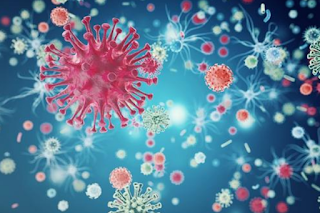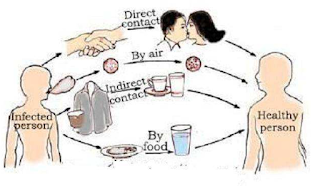Around the world, people are really worried
about coronavirus. You've seen people wearing masks and you might have also seen
some pictures of people's dogs wearing masks. In this article, Happy
& Polly will tell you whether your dog or cat can spread COVID-19,
and how to protect your pets from virus.
Can
Pet Spread COVID-19?
There is a difference between being infected
and being infectious, it's when you're infectious that you are capable of
spreading the virus. The corona virus has spread to countries across the world,
but officials believe that it all started in Wuhan, China. It's believed that
the virus that may have originated from a market in the city where people can
buy an assortment of wild game meat. It's too early to say that.
The moment we have this one case of Hong
Kong or the pet dog, who has shown a weak positive result for the virus, they
think perhaps this dog picked up the disease from a contaminated surface. It is
after all living with its owner who has been diagnosed with the disease.
And what we do know about this particular
case is that the Pomeranian is not currently showing any symptoms as actually
meant to being quite critical. So while this dog is showing test results that
say it has the virus that doesn't necessarily mean that it is infectious, and
that it can then pass it on. For the moment, probably not Hong Kong authorities
are telling people that they should definitely avoid casino pets, but this has
meaning for everyone.
Coronavirus is spreading around the world,
and while the main spreader of this disease is human to human transmission. This
virus is highly infectious and we really need to minimize the spread of germs,
so that means maintaining distance keeping up good hygiene just like we've been
told to do with other people.
How
to protect your pets from COVID-19?
We should do the same with our animals too,
because there's still so much that's unknown about how this virus spreads and
how it operates. So that definitely includes avoiding kissing your pets. People
are really worried about that pet and they want to do their best to protect
them, you might have even seen some photos of pets with masks on, but officials
have said that that's not really feasible. A dog doesn't have sweat glands and
it uses its tongue to cool down.
So it's really not comfortable for a dog to
be wearing a mask that covers its face. And also for humans, the advice at the
moment is that masks are at their most useful if you wear them when you
yourself are sick; As with pets, we've still got no evidence that COVID-19 has
actually made an animal and well.
If you're worried that your pet is sick, the
first thing to do is not panic. Keep up that good hygiene and maintain that
distance, and contact your vet for some advice as soon as you can and their
victims without a voice as the deadly coronavirus continues. Reports have
emerged that pets are being abandoned. Coronavirus has been really stressful
for a lot of people, and there have been some reported cases of people
abandoning their pets. There is absolutely no need to do that. We just need to
keep up good distance practices and good hygiene and this is how we'll limit
the spread of the disease.
Animals are not at risk from coronavirus if
your symptom-free, however there are measures to consider if you or someone you
know has tested positive for Convid-19. If pets have close contact with
somebody who's positive, there is a small risk they could carry the virus on
their coat. For instance, if somebody coughed close to them for this reason, it
makes sense for pets to take part in social distancing just like humans, and
that means keeping them inside.
There's no evidence that the COVID-19 virus
can be transmitted between pets. However, a pet in the home of a person who has
covered 19 could have the virus on their fur, and could pass it on to your pets’
coat through physical contact.
For this reason, it makes sense to keep cats
indoors and to keep dogs on leashes, just as you'll need to buy food for
yourself. You need food for your pet whether via home delivery or by asking a
friend to buy it. Minimize your own contact with your pet, wash your hands before
and after any interaction, ask someone else to walk your dog if possible.
If your pet falls ill, please don't take
them to the vet and call your local vet practice for advice on what to do. Dog
walks are as important for the mental stimulation as for the physical exercise.
So make sure that your pets receive plenty of this, offer them interactive toys,
and may be used this time to engage in reward based dog training at home, also
relieve your own boredom as well as your dogs by teaching them some new tricks.
Visit the dogs trust online video school to find out how.
Hope this can help you protect you and your
pet. If you enjoyed it and would like to see more news, do not hesitate to
visit Happy & Polly website on https://happyandpolly.com.





Comments
Post a Comment